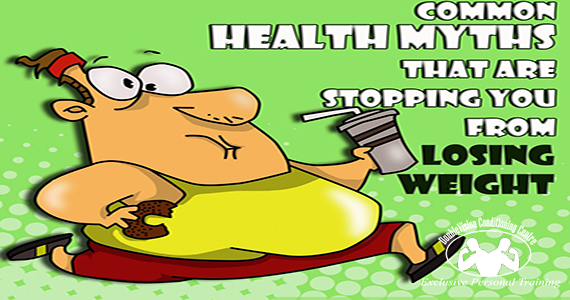
Highlights in the Podcast:
01:32 – Myth #1 – Special K for breakfast
04:28 – You’ll lose weight but you’re not healthy
05:56 – Myth #2 – Running long distance to lose body fat
10:45 – Do some short sharp burst and resistance work
11:37 – Myth #3 – Low fat is best
13:53 – Focus on the natural foods
15:31 – Myth #4 – You have to have milk
17:03 – You’ll have less calcium in your body
18:58 – Dairy is not the best source of calcium
Hello and welcome to another episode of the TheDVCC.com podcast. I am Mark Gray
Stephen: and I’m Stephen.
Mark: So we got a few myths to dispel today. That’s going to be the focus. We want to dispel some common health myths. We are also going to try and listen to our listeners and not move around as much, not make as much background noise, you won’t hear any mobiles on today. Obviously I’m very busy, busy person and my phone goes off all the time, mum checking up on me, but I’ve turned it off for now. So you are going to have an uninterrupted 30 minutes our dulcet tones. So like I just said, we are going to be talking about myths and dispelling them. A lot of people have these myths that are passed around or passed down from parents to their children or what, or you just kind of picked them up in the workplace, which is the new school playground. So the thing with these myths is they can actually hinder your weight loss efforts. So we are going to focus on each one and give you the reasons why they are not right and what you should actually be doing. So the first one that Stephen has got with a list and so I’m going to leave it to him. Give me the first one.
Stephen: The first one will be Special K for breakfast and actually you have seen on those big signs, those…
Mark: Billboards.
Stephen: …are really great adverts, I really quite like it, which is for Special K for breakfast. You know, everyone does at the beginning of the year Special K Jeans Challenge I think it is, and basically where they say eat Special K for breakfast, and I think you are supposed to eat Special K for lunch and then a normal meal in the evening to lose weight. But a lot of people think that they are actually doing something healthy by having Special K for breakfast and obviously in our opinion, Mark, that’s not ideal, why?
Mark: Throw me in there. So it’s actually proven that a high-fat, high-protein breakfast makes you much less likely to overeat for the rest of the day. It sets up what’s called your “neurotransmitters” which has kind of effectively broadly put brain function, so you’re going to be smarter throughout the day if you have protein and fat. And Special K contains none of those things. It is just pure refined carbohydrates.
Stephen: And also it should be noted when you said high-protein, it’s high healthy fats. We are not talking unhealthy fat from say McDonald’s burger, but also we should say that the first 30 grams that you ingest in the day go towards your immune system. So a lot of the time you find, and if you are actually following, say a Special K plan, you are not going to be having any protein really until dinner time. And I was actually speaking and consulting with a lady just last week and she followed that same sort of pattern and actually did not eat any sort of protein until dinner time. So not only is her immune system not going to be functioning correctly, so she is at a greater risk of colds and things like that, but also she won’t be able to sustain any muscle tones. Actually she wanted to be toned and have some muscle tone, but she is not going to be able to have that because her body won’t be able to sustain the muscle because it doesn’t have enough protein branch and….
Mark: I was liking this to a lot like people who have done a Special K Jeans Challenge and have lost lots of weight, and you know, ‘I’m thinner, I’ve lost lots of weights’ and I’m sure you will, first time around, second time around maybe, and we consulted with a lot of people who have done this or being on diet like that for many years and kind of then they realized that they actually want to have a healthy lifestyle and lose weight healthier and keep it off. But anyway, what I’m saying is when you do those kind of diets, you do not look better naked, because you will need muscle tone. So at the end of the day looking and being healthy does not have to be mutually exclusive. So you can lose weight and you can be healthy whereas these kinds of Special K things, you’ll lose weight but you’re not necessarily going to be healthy.
Stephen: Explain you are losing muscle most of the time. So rather than losing fat, which is actually what you want to lose, which makes you smaller and makes you more toned, but you will actually be losing muscle which means that things will still shake and bounce because it’s the fat that you have left behind and not muscle. Muscle does not shake.
Mark: Muscle doesn’t shake or bounce. There we go. Good line. Anyway, so that’s the first one and that’s because we keep seeing that billboard, but it’s a great line, what is it? What you are going to gain when you lose? Now does anyone know about trademark? Can anybody else ever use that or is that now gone forever? So that line you can never use. The piece is brilliant and I think that doing it the healthy way, it is much more valid to use that line than just to say Special K eating cereal for breakfast, lunch and a proper meal for dinner.
Stephen: I agreed.
Mark: Anyway we are not bashing Special K. It works for some people just not for…
Stephen: …most people’s health…[Laughter]
Mark: Yeah. Moving on. The next one, Stephen, myth. Actually there’s a good myth that just popped into my head and now I think it has just popped right out of my head just from that.
Stephen: You obviously didn’t have your protein this morning.
Mark: I didn’t have my protein. Actually I did have meat for breakfast, but it will come back to me. Let’s go on to the next myth.
Stephen: So the next one is running long distance to lose body fat or lose weight as the most effective thing.
Mark: Right. And you get this a lot. A really good way of thinking, you see those people training for the marathon, because the marathon is coming up. We have a fair few people training at the centers for the marathon as well, well London Marathon. And a lot of people start running or training for it and expect to lose weight. And last week I have received an email from a chap saying that he was running, training for the marathon, and I was like, ‘Okay cool. Are you wanting to lose weight as well or are you just trying to run for marathon?’ and he said, ‘No. I was hoping that the training and all the long distance running would make me lose weight’ and he had actually put on, I shouldn’t laugh but I’m not laughing, he put on half a stone and it kind of proves or I mean that is just a very brief proving it though that long distances, you are not designed to run long distances. I’m certainly not design to run long distance and your body isn’t and therefore it doesn’t react as optimally as it could, say for fat loss or for just general health as shorter sharper burst of high intensity, it is called high intensity. So when you are working really hard for shorter periods of time, your body is not design to run the same pace for a long period of time and therefore you won’t achieve your goals as quickly as you want, if it’s weight loss you are looking after.
Stephen: Well that’s actually physiological reason of why doing long distance running isn’t the most effective way to lose fat and really sustain muscle tone. One of those being that long bouts of endurance running actually increase the stress hormone cortisol, which we have actually spoken about quite a few times, I think in the podcast…
Mark: Podcast 5 or so.
Stephen: And it increases that cortisol hormone which in turn tends to eat away your own muscle which then leaves you storing more body fat. Also long distance running causes oxidative stress, general stress on your whole body, which actually can age you. So if you are in a season that does a lot and a lot of endurance running, often they will find that it has aged them because of all the oxidative stress that they take in. And another thing to point out with the endurance and talking about the marathon is that a lot of people think long distance running is just a license to eat as much carbohydrates as you want but then actually don’t think about what type of carbohydrate their eating. So I think people suddenly think that eating white pasta is suddenly healthy for them because they are running for marathon or doing long distance running, which could not be further from the truth. Most people would be intolerant to the gluten in the pasta but also it is the most effective way for you to replenish your glycogen stores which is actually all you wanted to do by having these carbohydrates anyway and having some sort of healthy carbohydrate source, such as sweet potato would be far, far more effective at replenishing your glycogen stores and actually giving you energy to be able to run which is essentially what you are looking to do anyway.
Stephen: True. Very true. And actually I’m going to speak very quickly about a girl called Maya. Maya are you listening? I hope you are. Actually we used to live together. Actually she was at Paynes, so I would like to point out not like that, she was just a housemate. I was always training Maya. So Maya knew lots of sprints and lots of that kind of stuff and lost a lot of weight. I think she has lost 3 stones or so at the time when I was training with her and then she has tried to train for the marathon and stopped doing as much short sharp burst and resistance work and actually put on weight. She trains now back in our centers and has done for about six months, I think or so, and is still training for marathon. Her marathon running has got a lot and lot better by doing resistance work and short sharp burst as well and also she has lost that weight that she has put on and then some and getting better at the marathon, you know, and she is still doing long distance running, the long runs that actually, yes, you do have to put in for the marathon, but it doesn’t mean that they are best for fat loss. So she is training for the marathon, that’s fine, but she is under no illusion that if she just did that she would be losing weight because she knows she wasn’t, because she did just do that running and didn’t.
Mark: A lot of people think that training like a marathon runner, i.e., doing long distance running three times a week is the way to lose weight, particularly at this time of the year you will see there are certainly lot more people running around. So it should be pointed out that the best way if you do want to go outside and run, which is great, is that you should be doing some short sharp burst and if you are doing like that you don’t need to be out there for longer than 30 minutes, if you are doing it.
Stephen: True. And if you work hard.
Mark: One good quick workout for you to try would be six sets. So 6 different sets of 30 seconds sprints with 2 minutes active recovery, either a walk or slow jumping if you manage it, but with 30 seconds of sprints 6 times and that is more than enough.
Stephen: And when you say sprint, that’s kind of like?
Mark: Like all out.
Stephen: All out.
Mark: A slight disclaimer. If you have never exercised before, don’t do it like that. Okay? Do it under guidance, I think, if you have never exercised before, try and build up on that. Yes and you do it under your responsibility or whatever. We are broadcasting to the world, so you know America, we could be getting sued. Alright. Next myth.
Stephen: Next one is that low fat is best.
Mark: Right and I still hear that actually. I thought that, you know, the Daily Mail have educated everybody on that, but unfortunately we still hear it and that is most definitely a myth because…
Stephen: Well, for one it is going on the principle that the less few calorie you are taking and the more burn, basically trying to get a deficit in the number of calories that you are taking to the number of calories you burn. But that really did kind of look at the world through a straw in that your body doesn’t treat calories in an equal way. So I’ve probably said this many times but it’s worth repeating that calories from McDonald’s burger, say you have 500 calories from McDonald’s burger and 500 calories from a coconut. Those two lots of calories will get treated massively different in your body because obviously one is from a healthy source and one from a processed refined source.
Mark: Right.
Stephen: So a calorie is not a calorie basically.
Mark: Classic line.
Stephen: Calorie is not a calorie. They are not made equal in your body. Your body doesn’t treat them in the same way. So if you were to get 1000 calories from McDonald’s or 1000 calories from healthy protein and vegetables, you are going to be completely in different shape.
Mark: Right. Simple. And also it’s the whole thing of processed foods. So for these foods to have less fat, you know, if the natural sources for their fat are to be taken out, they are going to go under a lot of processing. So yoghurt or whatever or milk even, for that to be fatless or low fat, they have undergone a lot of processing and generally in the processing stage or whatever, they don’t just take out, they put in as well.
Stephen: So what are they going to replace the fat with normally?
Mark: Some sweetness right? Sugar. Yeah.
Stephen: It’s normally sugar.
Mark: Exactly. Normally sugar.
Stephen: Which is in my eyes, our eyes, if you are having a full fat natural yoghurt, which is fine for you, and then you are comparing that to a low-fat yoghurt with sugar, that’s far, far worse body fat wise and health wise, than having the natural version.
Mark: So disregard the calories to a point and focus on the natural foods, simply put.
Stephen: Exactly. You are much better focusing on the natural types of food rather than trying to replace them with low-fat and man-made processed.
Mark: Exactly and I have just remembered what I wanted to say earlier. The little extra myth is a pound of fat weighs more than a pound of muscle, right?
Stephen: That’s one you hear a lot, but obviously you really kind of mentioned it to people. It’s a pound of something, so surely it weighs the same as…
Mark: Exactly. A pound weighs the same, but I was watching a Youtube video yesterday evening. It has kind of gone viral. And it was this American chap in a car speaking to his girlfriend…
Stephen: I saw that yeah.
Mark: …and asking her to work out the mathematics of, ‘If we’re traveling at 80 miles per hour, how long will it take us…’ No. I couldn’t get it right.
Stephen: ‘If we’re traveling at 80 miles an hour, how long will it take us to travel 80 miles?’
Mark: 80 miles, right, and it was brilliant watching that. She couldn’t actually accept that it were to take 60 minutes to do that. It takes 60 minutes. So comment below, if you are doing 40 miles an hour, how long will it take you to do 40 miles? Let’s see if you can work that one out.
Stephen: Well, because you need the answer.
Mark: Exactly. Right. So another myth?
Stephen: We got one more.
Mark: Ah one more.
Stephen: That was actually, it was to do with, well, following on from the milk thing we are just talking about, which is – You have to have milk for your calcium.
Mark: Right. But yeah, surely you do, especially as a children and things you need calcium to grow bones.
Stephen: But that’s what we were all told that you have to have, particularly ladies that go towards menopause and things like that as well. The best source of calcium is from dairy, so milk and things like that, which actually all the studies now point to not being true at all. It is rather the amount of calcium that you lose, that you deplete from your body, than the amount you take in and also that there are actually very small amounts of calcium in dairy when you compare it to other foods – green vegetables and things like that.
Mark: Especially when you take into consideration the fact that it depletes.
Stephen: So let me explain what happens. Because basically when your body becomes acidic, so certain foods can be acidic in your body and cause it to become acidic, such as milk and things like that, meaty foods, meat can be, but all processed foods will become acidic and make you acidic in your body. Then your body needs to alkalize itself because it’s not able to function in an acidic state. So to alkalize itself what it does is that it takes away calcium from your bones and also another something called glutamine from your muscles. So basically what I am saying is that it breaks down your muscles and it breaks down your calcium from your bones. So that’s why you are lot more likely to have thinner bones and have lot less calcium in your body if you are eating a processed acidic diet. So you can drink five cow’s worth of milk everyday but if you are in an acidic state, your body is just going to be depleting it quickly than you are taking it in.
Mark: Right and we should point out what we used to do. So we went to school and we used to walk to school everyday, I think how long ago, until we’re 15, right?
Stephen: Yeah.
Mark: It was, I don’t know, maybe a 20- to 30-minute walk and we were always little, very small at school really.
Stephen: Well you are smaller than I was.
Mark: Whatever. Anyway, we weren’t the biggest and we are actually one of the smallest guys and we are definitely the smallest guys and certainly playing rugby and sports and things, we were the smallest. So we obviously wanted to get bigger. And we thought right, just as many people, we had that myth, we used to buy four pints each of…was it skimmed? It was skimmed. We wanted the skimmed because we didn’t want the fat, which we know now is wrong. But we literally walked to school drinking four pints each of milk, like forcing it down pretty much because that’s a lot of liquid. We threw a lot on the way because we wanted to be big and strong.
Stephen: Now knowing what we know now we could just have a little of…if we wanted to at those times I would rather have gone with coconut milk.
Mark: Exactly. It is also the calcium as well that I was saying that we wanted. And funny enough I fractured my shoulder I think that same year, but it was only small, because you know, I recovered pretty quickly. But yeah, so we fell for all those myths, obviously. We must have picked it up, I don’t know, where we picked it up then, obviously from our parents.
Stephen: It’s just common and what was supposed to be a common knowledge, wasn’t it? It just bandied around. But just to clarify, the dairy is not best source of calcium. You are much better having lots and lots of green vegetables and making sure that you are eating very alkaline diet, so low-GI fruits and green vegetables are the best way to alkalize your body.
Mark: Give example of low GI fruits.
Stephen: Any berries and some apples.
Mark: Berries, raspberry and strawberry…
Stephen: Anything that ends with ‘berry.’ And you are much better making sure that you are not getting rid of all the calcium you have in your body, rather than taking in.
Mark: Good. I hope you enjoyed that little story. So that’s all of those…how many myths…you got any more myths Stephen? Actually we will put this on Facebook and we are going to put this on our blog, which is iloveweightloss.co.uk and I’ll tweet it. We are now getting into Tweeter. So if you are on Tweeter add @TheGrayTwins. But comment below and let us know what myths you have heard and you know, you might believe it and true, we can either dispel or agree with you and let you know. So make sure that you do comment below because it would be really great and share as well, you know, like this is just a free podcast with us chatting about, you know, and we’ve spent tens of thousands pounds literally on education. So we hope you know a thing or two and we could probably help, you know, you don’t have to be in Bedford, you don’t have to be in Milton Keynes where the centers are or at Tempsford. You can be in, like we say…
Stephen: Timbuktu. It was on the news, I think if I was listening to the news correctly, and I very rarely watch it but it was just on the background. Timbuktu is in a country in Africa called Mali.
Mark: Isn’t it in Mali where Dad always used to go in Africa? Because we used to live in Africa, just an FYI, and he was living in Africa for many, many years. I remember Mali meal he was talking about that like a thing that we used to eat.
Stephen: There is some trouble in Mali and France got there to help out.
Mark: Good on the French. Okay. If anyone knows that answer, Mali meal, Mali, and Timbuktu, let us know because we are constantly trying to educate and sometimes on History and Geography I made to look not perhaps the most intelligent, so that would be of great help. Anyway, until next week, I look forward to hearing all your comments. Alright. Bye-bye.






